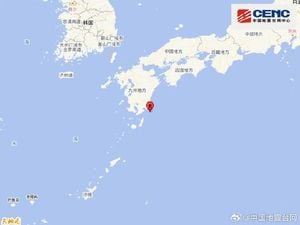As the world braces for significant economic shifts, U.S. President Donald Trump is poised to unveil his highly anticipated reciprocal tariff plan today, April 2, 2025, at 4 p.m. EDT. Dubbed "Liberation Day," this announcement is expected to escalate the ongoing trade war and could have far-reaching consequences for global markets and economies.
During a press briefing, White House press secretary Karoline Leavitt confirmed that the new tariffs would take effect immediately following the announcement, adding to the existing 25% tariffs already imposed on Canadian steel and aluminum imports as of March 12, 2025. This move is part of Trump's broader strategy to address what he perceives as unfair trade practices by other nations.
The new tariffs are likely to target key sectors, including automobiles, pharmaceuticals, semiconductors, and softwood lumber, with the latter being a critical export for Canada. Trump has characterized various Canadian non-tariff protections, such as the dairy supply management system and the digital service tax, as indirect tariffs on U.S. exports. The U.S. administration is reportedly considering a tiered tariff system that could impose flat rates of 10% or 20% on goods based on each country's trade barriers against U.S. products.
In Canada, Prime Minister Mark Carney has vowed to respond with retaliatory measures if additional tariffs are imposed. He stated, "We will put in place retaliatory measures if there are additional measures put against Canada tomorrow," while ensuring that the response would not disadvantage Canadian workers. Carney's government is currently working on counter-tariffs targeting billions of dollars in U.S. goods and is expected to convene a cabinet committee after the U.S. announcement.
The Canadian government has already promised retaliatory tariffs on $95 billion worth of U.S. goods if the current tariffs are not lifted. This comes on top of the $59.8 billion in tariffs already in place, further complicating the trade relationship between the two nations.
As the situation unfolds, the Canadian government is also facing challenges from within. A bipartisan group of U.S. Senate lawmakers is set to vote on a resolution that could challenge Trump's national security justification for imposing tariffs against Canada. This internal opposition may impact the extent of the tariffs and any potential negotiations moving forward.
Meanwhile, the European Union and other affected countries have signaled their intent to retaliate against the U.S. tariffs. European Commission head Ursula von der Leyen stated that the EU has a "strong plan" to respond, though they would prefer to avoid further escalation. The global trading system is on alert as nations prepare for the potential fallout from these tariffs.
In the lead-up to the announcement, analysts and economists have expressed concerns that the continued escalation of the trade war could plunge the U.S. into recession. The economic implications are already being felt, as U.S. imports surged to record levels in January 2025, with consumers stockpiling goods in anticipation of the impending tariffs. This surge was driven primarily by increases in imports from Canada, China, and Mexico, reflecting a rush to secure products before prices potentially rise.
As the new tariffs threaten to shake the foundations of international trade, Canadian businesses and workers are left grappling with uncertainty. For instance, Mike Egli, who runs a lumber operation in British Columbia, expressed concerns over the potential impact of new tariffs on his business. With softwood lumber already facing duties and the threat of increased tariffs looming, Egli's operations could face further challenges.
In response to the mounting pressure, Conservative Leader Pierre Poilievre has promised to create a "targeted" fund to support workers affected by the tariffs, emphasizing the need to protect Canadian jobs and industries. Poilievre's plan includes a commitment to renegotiate the Canada-United States-Mexico Agreement (CUSMA) to better safeguard Canadian interests.
As the political landscape shifts, both Carney and Poilievre are navigating a complex environment where trade relations with the U.S. are a top concern for voters. Polls suggest that the U.S.-Canada trade war is a significant issue in the ongoing federal campaign, influencing public sentiment and political strategies.
Trump's rhetoric surrounding the tariffs has been aggressive, framing the measures as necessary to protect American interests and to rectify perceived imbalances in trade. He has repeatedly emphasized that the tariffs are a means of ensuring that the U.S. is treated fairly in international trade, positioning the upcoming announcement as a pivotal moment for American economic policy.
As the clock ticks down to the 4 p.m. announcement, businesses and governments alike are preparing for the potential ramifications of Trump's tariff plan. The outcome of this announcement could reshape trade relationships for years to come, as countries respond to the new economic reality.
With the stakes higher than ever, the world watches closely as the U.S. takes its next steps in this high-stakes trade war. The implications of these tariffs will be felt not just in North America but around the globe, as markets react and nations respond to the unfolding economic drama.







